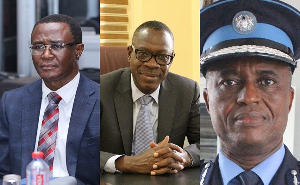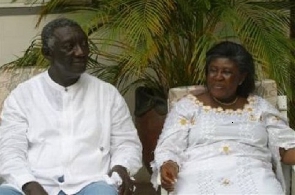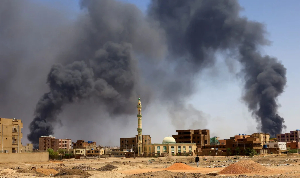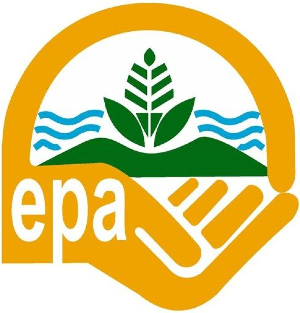The Vice Chancellor of University of Mines and Technology (UMaT) Tarkwa, Professor Richard Kwasi Amankwah, has urged small scale miners to be conscious of their health.
He pointed out that miners could prospect for gold but they should ensure that they contained their waste properly so it does not pollute water bodies.
"Small scale miners should do things that would let the villages they work around go about their duties smoothly and also live in a healthy environment".
Prof. Amankwah gave the advice in an interview with the Ghana News Agency (GNA) after UMaT in collaboration with the University Teachers Association of Ghana (UTAG) UMaT branch and Gold Fields Ghana Limited marked the World Health Day celebration at Tarkwa.
The theme for this year was "Building a fairer healthy world" but UMaT narrowed it down to "The silent killers: A public health challenge".
The Vice Chancellor said "we are certainly aware of the pollutions that have taken place in our water bodies due to the activities of small scale mining".
He explained that UMaT has conducted a research and the outcome revealed that the water bodies around them were gradually accumulating high levels of nickel, cadmium and lead.
According to him, they realized that it was because of the careless disposal of nickel and cadmium battery from mobile phone.
"When our mobile phones die off, the nickel and cadmium battery is disposed. It get into the general environment the rain falls on it and micros act on it, then the nickel and cadmium dissolve. They then find themselves into the water way and we end up drinking this water or at least use it to cook food and they enter the food chain," he noted.
Prof. Amankwah indicated that "Ghana Water Company Limited does not check for nickel, theirs is to look for bacteria, so if there are mercury from small scale mining, nickel, cadmium and lead from batteries they may not pick it".
The Vice Chancellor said UMaT has started some basic research in their laboratories and have been able to come out with some friendly chemicals which can be used to settle the suspended minerals in water bodies.
He said the University would soon engage the government and the Water Resources Commission to cleanse the waters.
General News of Saturday, 10 April 2021
Source: gna.org.gh













